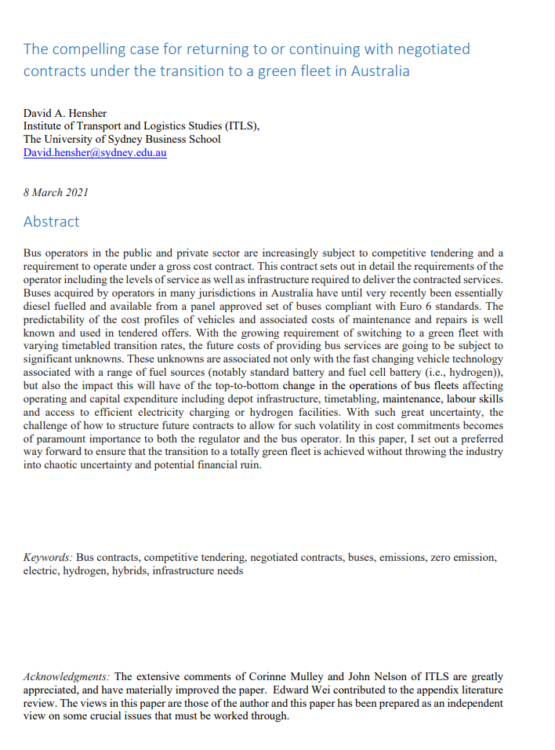Abstract
Bus operators in the public and private sector are increasingly subject to competitive tendering and a requirement to operate under a gross cost contract. This contract sets out in detail the requirements of the operator including the levels of service as well as infrastructure required to deliver the contracted services. Buses acquired by operators in many jurisdictions in Australia have until very recently been essentially diesel fuelled and available from a panel approved set of buses compliant with Euro 6 standards. The predictability of the cost profiles of vehicles and associated costs of maintenance and repairs is well known and used in tendered offers. With the growing requirement of switching to a green fleet with varying timetabled transition rates, the future costs of providing bus services are going to be subject to significant unknowns. These unknowns are associated not only with the fast changing vehicle technology associated with a range of fuel sources (notably standard battery and fuel cell battery (i.e., hydrogen)), but also the impact this will have of the top-to-bottom change in the operations of bus fleets affecting operating and capital expenditure including depot infrastructure, timetabling, maintenance, labour skills and access to efficient electricity charging or hydrogen facilities. With such great uncertainty, the challenge of how to structure future contracts to allow for such volatility in cost commitments becomes of paramount importance to both the regulator and the bus operator. In this paper, I set out a preferred way forward to ensure that the transition to a totally green fleet is achieved without throwing the industry into chaotic uncertainty and potential financial ruin.
Disclaimer
The views represented are those of the author(s) and do not necessarily reflect the views or policies of CILT.

